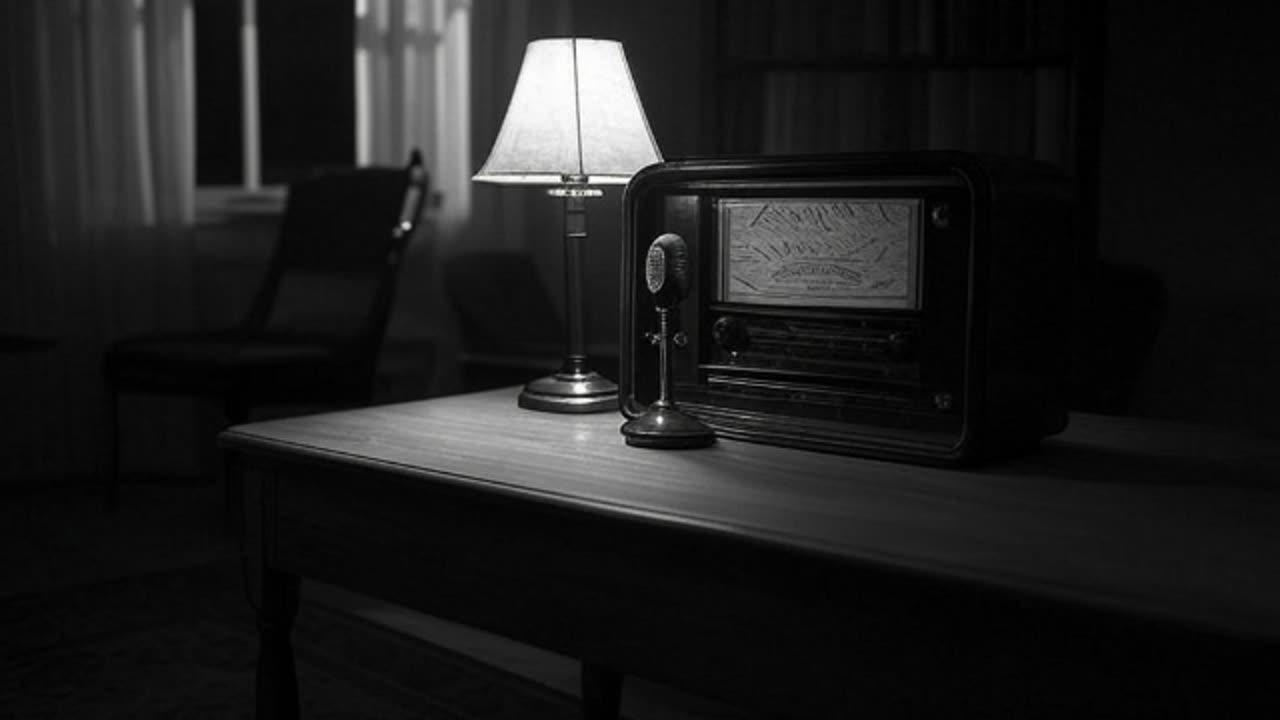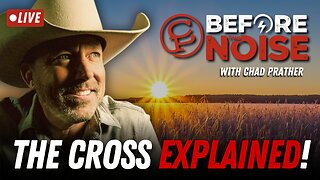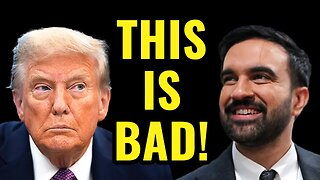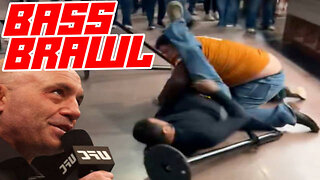Premium Only Content

Lights Out February 16, 1938 - Murder Castle
"Murder Castle," an episode of the radio horror series Lights Out, aired on February 16, 1938, over the NBC Red Network. Written by Arch Oboler, this macabre tale draws inspiration from the real-life crimes of H.H. Holmes, who operated a deadly “Murder Castle” in Chicago during the 1890s. The story centers on a sinister figure, likely a prosperous but malevolent man (akin to Holmes), who lures vulnerable women to his elaborately designed mansion under false pretenses, such as job offers. The mansion is a labyrinth of trapdoors, hidden rooms, and soundproof chambers, built for murder and disposal of victims. A young woman, possibly a job applicant, becomes ensnared in his scheme, unaware of the danger. As the plot unfolds, eerie events—strange noises, locked doors, or a survivor’s cryptic warnings—reveal the killer’s methods. The episode builds to a chilling climax, likely involving supernatural justice, such as the killer’s downfall through ghostly intervention or his own traps. Oboler’s use of sound effects, like creaking hinges and muffled screams, amplifies the horror, delivering a grim commentary on human evil.
Note: No surviving recording or detailed script of the February 16, 1938, broadcast exists in public archives, and some sources confuse it with the 1943 rebroadcast. The summary is based on the episode’s documented title, Oboler’s style, and its Holmes-inspired premise, as noted in radio logs and secondary sources.
Cast and Crew
Cast:
Lead actors: Likely included Boris Karloff or Mercedes McCambridge (frequent Lights Out performers in 1938; Karloff is noted for similar roles, though not specifically confirmed)
Supporting roles: Filled by NBC stock players, possibly including Lou Merrill, Betty Winkler, or Joseph Granby (specific roles not documented)
Announcer: Not explicitly credited, likely an NBC staff announcer
Crew:
Writer/Director: Arch Oboler (primary creative force behind Lights Out in 1938)
Producer: NBC Red Network, overseen by Arch Oboler
Music: NBC house orchestra, likely arranged by Leith Stevens or another network composer
Sound Effects: NBC sound effects team, using techniques like slamming doors or amplified footsteps for the mansion’s eerie ambiance
Note: Exact cast and crew details for this episode are not documented due to limited archival records. The above is based on Lights Out’s standard production team and recurring actors during the 1938 season, as noted in sources like Old Time Radio Catalog.
News in the United States (Week of February 16, 1938)
Economic Recession: The "Roosevelt Recession" worsened, with industrial production down 25% from 1937 highs. President Franklin D. Roosevelt faced pressure to expand New Deal spending, with unemployment at 17.8%.
Labor Tensions: The United Auto Workers negotiated with General Motors, averting a major strike in Flint, Michigan. Smaller walkouts in textile mills were reported in New England.
Aviation Progress: Pan American Airways announced plans for regular transatlantic passenger flights, with test flights scheduled for spring. The industry buzzed after a successful Pacific route expansion.
Political Debates: Congress debated military spending, with isolationists opposing Roosevelt’s naval expansion plans despite global tensions. The Ludlow Amendment, proposing a war referendum, was defeated.
Cultural Note: Snow White and the Seven Dwarfs, released in December 1937, continued its box-office reign, drawing families and boosting Disney’s prominence.
News in the World (Week of February 16, 1938)
Anschluss Prelude: Nazi Germany increased pressure on Austria, with Chancellor Kurt Schuschnigg meeting Adolf Hitler on February 12 at Berchtesgaden, yielding to demands for Nazi influence. The Anschluss loomed (March 12).
Spanish Civil War: Franco’s Nationalists consolidated gains in Teruel, with Republican forces retreating. Italian air raids on Barcelona killed dozens, escalating foreign involvement.
Sino-Japanese War: Japan’s invasion of China saw advances in Shandong, with Chinese forces under Chiang Kai-shek regrouping. Reports of the Nanjing Massacre (December 1937) reached Western media.
British Appeasement: Prime Minister Neville Chamberlain faced a crisis as Foreign Secretary Anthony Eden resigned on February 20, opposing appeasement of Hitler and Mussolini. The split weakened Britain’s stance.
Soviet Purges: Stalin’s Great Purge intensified, with the trial of the “Anti-Soviet Bloc” condemning Nikolai Bukharin and others to death. The purges crippled Soviet military readiness.
-
 LIVE
LIVE
SOLTEKGG
1 hour agoGOING FOR THE WIN WORLD RECORD - BF6 Giveaway
86 watching -
 1:06:37
1:06:37
Chad Prather
14 hours agoApplying The POWER Of Christ To Your Life!
58.8K25 -
 LIVE
LIVE
LFA TV
14 hours agoLIVE & BREAKING NEWS! | FRIDAY 11/7/25
4,006 watching -
 1:05:59
1:05:59
Crypto Power Hour
15 hours ago $0.14 earnedTop 10 Cryptocurrency Staking Platforms
68.6K10 -
 35:53
35:53
Mike Rowe
1 day agoBreaking Down Bill Gates' 3 Tough Truths About Climate | Alex Epstein #457 | The Way I Heard It
69.5K51 -
 23:22
23:22
Stephen Gardner
1 day ago🚨BREAKING: Mamdani Won and What Trump EXPOSES About It is SHOCKING!!
49.6K142 -
 1:16:41
1:16:41
Steve-O's Wild Ride! Podcast
22 hours ago $0.06 earnedAdam Ray Absolutely Kills Steve-O | Wild Ride #273
39K5 -
 37:22
37:22
efenigson
1 day agoWhat COVID Taught Me About Money & Control - Efrat Fenigson | Ep. 104
30.9K5 -
 1:20:56
1:20:56
Dialogue works
2 days ago $0.58 earnedCol. Larry Wilkerson: No Way Out for Israel - Iran & Russia — NATO’s Worst Fear
57.1K14 -
 10:37
10:37
TheSaltyCracker
21 hours agoMassive Brawl Breaks Out in Bass Pro Shop Over Bathroom
63.9K168